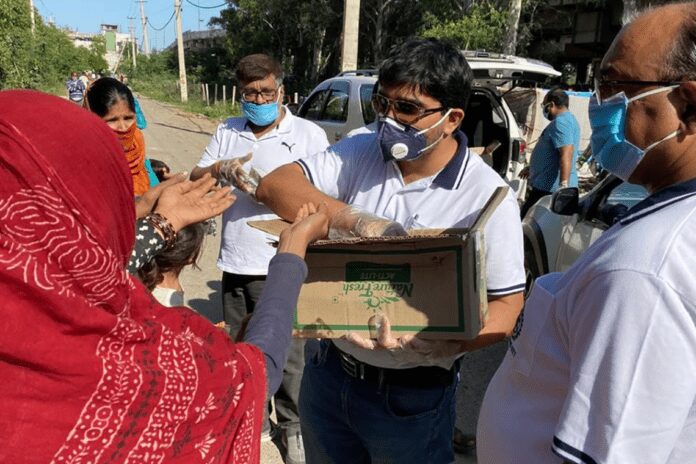Dear DCID Community,
Our work at DCID has never been more important than it is right now. The pandemic continues to undermine decades of success at reducing extreme poverty in emerging economies, and it will certainly have further deleterious downstream effects on health, the environment, family and social structures, governance, and even conflict. Our vision over the next year is to prepare DCID to play a leading role in understanding the roots of these problems, devising policies to mitigate them, and equipping current and future leaders with the substantive knowledge and analytical tools to solve them in their own country contexts.
The miracle of mRNA vaccination has given some of us in the United States a welcome respite from the difficulties COVID-19 has posed for over the past two years. While we mourn our lost loved ones, we have been able to venture out of our houses to see friends and family and commute back to our offices to resume semi-normal work-lives. Certainly, challenges remain, but hope is visible on the horizon here in Durham, North Carolina. Duke University and the Sanford School of Public Policy will even resume in-person classes next month. Unfortunately, the same cannot be said for our friends, family, and colleagues in other parts of the world – many of whom are facing the worst onslaught of hardship, since we first learned of COVID in December 2019. We have heard from them and how they are addressing these challenges in their communities. Anil Kumar Bhardwaj (MIDP 2015), for example, developed an oxygen management system to make sure oxygen was delivered to those who most needed it in his home district of Faridabad, India, this past spring. Many others are also working diligently to plot a path to sustainable and equitable recovery.
As an outward facing institution, which focuses on research and education pertaining to developing countries, COVID-19 has also hampered our core activities. Research projects have been waylaid, because scholars were not able to travel to the field or had to postpone project activities that could lead to transmission of COVID such as in-person surveys or interviews. Many prospective fellows and students in our training programs had their plans to come study at DCID up-ended by lockdowns, border restrictions, visa slowdowns, and declining scholarship funds.
Nevertheless, due to the unconditional support of the Sanford leadership and the unwavering commitment of our team, DCID has prevailed and emerged stronger because of those efforts. I am enormously proud of our faculty, who seamlessly transitioned to teaching online and hybrid courses, to make sure students were able to receive a cutting-edge education, regardless of where they were in the world. Because of their willingness to retool, 33 fellows graduated this year, starting their new careers in international organizations, home country governments, businesses, and non-profits.


Our executive training team demonstrated enormous creativity and innovation during the pandemic, building and staffing two lightboard studios in DCID to facilitate remote teaching and advisory work. They successfully switched our summer Monitoring and Evaluation for Development Policy (M&EDP) to an online platform. In addition, they expanded our programming to include two new, tailored courses on Behavioral Economics and Governance in Post-Conflict settings with new partners at Oxfam America and the Fort Bragg Civil Affairs battalion.
Despite the obstacles, DCID researchers found new ways to conduct groundbreaking research on a range of critical policy dilemmas. Our scholars have tackled challenging questions about the true extent of the spread of COVID transmission in India as well as the long-term economic effects of the crisis. A particular focus has been on the relationship between the environment and development, including the effects of pollution on cognitive development, the relationship between climate migration and violence, and economic decision-making in the context of climate change. Finally, a new $250,000 grant from USAID to DCID will fund new work on the relationship between business productivity and corruption, studying whether better managers take less regulatory short-cuts and therefore are less exposed to bribery requests.
The need to make targeted, strategic decisions with limited resources during COVID has sharpened the focus of DCID and given us a clearer sense of our mission. We now envision DCID as an integrated unit that facilitates the work of development researchers at Duke University, and promotes those findings to a wider, international development audience. Curricular changes in the MIDP program will ensure that fellows have the requisite management and research skillsets to be involved in DCID’s research projects through internships, studio classes, and Masters projects, and have the knowledge to translate cutting-edge findings within their own communities.
We believe these changes will best position DCID and our graduates to play leading roles in the discoveries and innovations that will facilitate economic recovery in the post-COVID world.
Sincerely,
Edmund Malesky
Director, Duke Center for International Development

